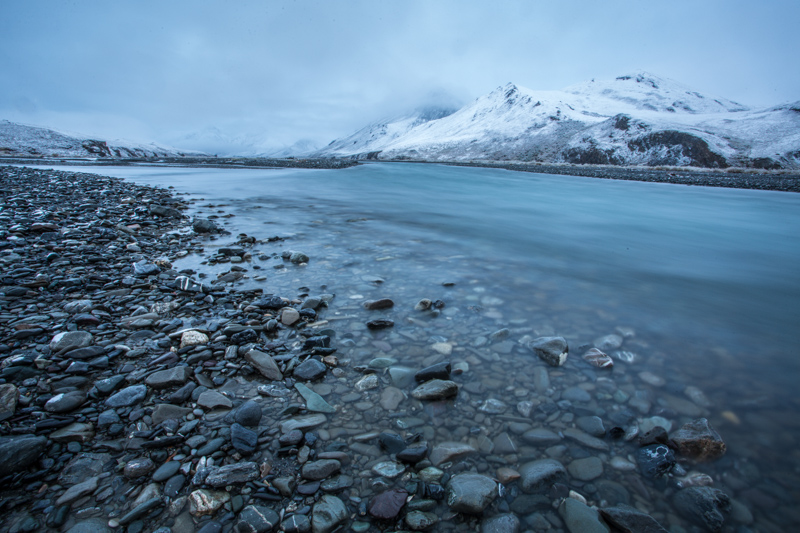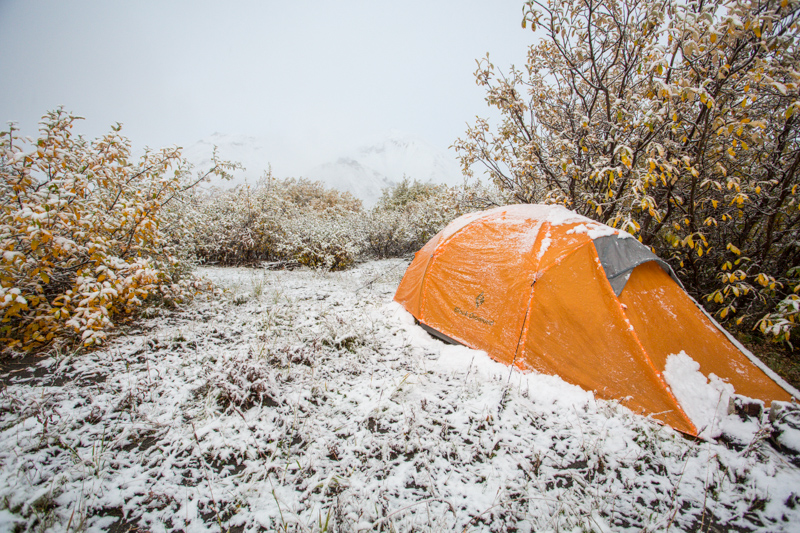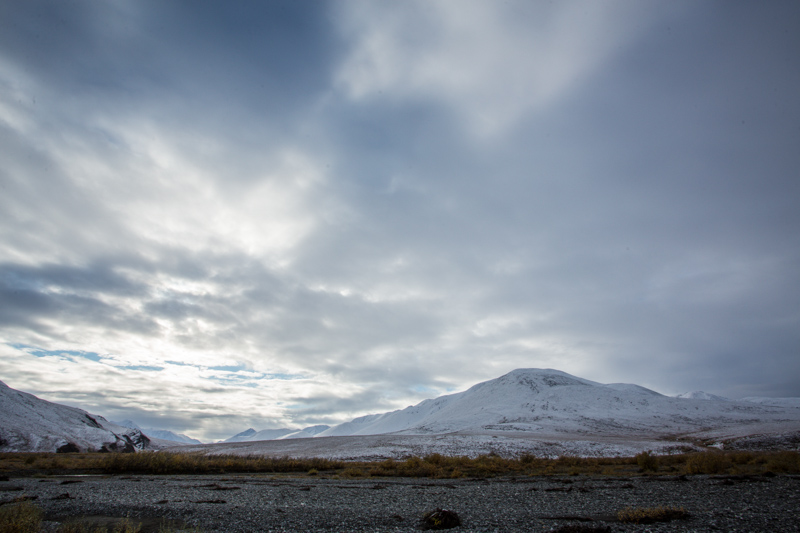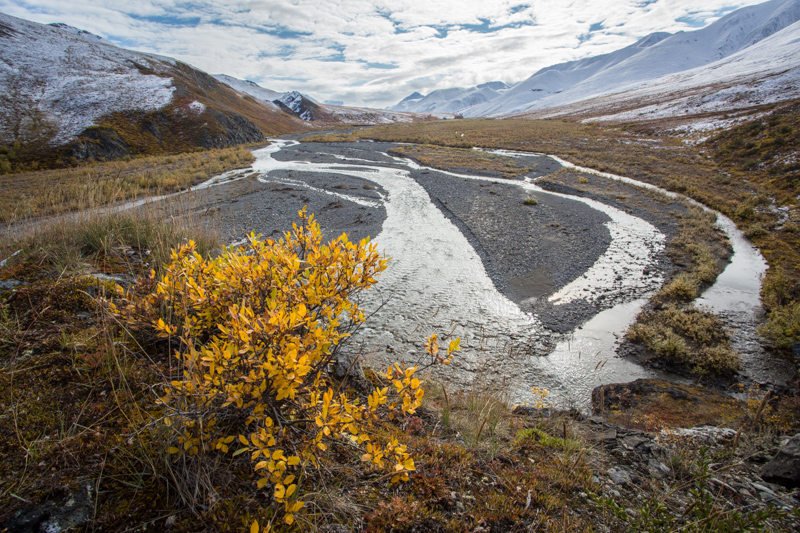5:30am on an Arctic morning and I was barefoot, standing in three inches of wet snow, wearing just my boxer shorts and holding a 12-gauge shotgun in my hand.
That was the moment I realized the absurdity of what I do for a living.
I had been asleep. A deep, peaceful kind of sleep. The kind of sleep that makes the rest of the world fade away into a soft fog, leaving the subconscious to wander happily through mountains of its own making. I was cocooned in three inches of down-filled nylon, cozy and warm, lost in my dreams.
<Rustle-rustle-tink-clang!>
The pleasant white-fog blocking the world outside began to clear and I opened my eyes to see the yellow nylon of my tent glowing in the morning light. Eyes still heavy, I opted to ignore the sound I’d heard, and drift back into sleep. Eyes closed, dreams tantalizingly close…
<Tink-tink-clatter>
Metal dishes moving, that’s all it was, the pots and pans.
Eyes closed, mind awakening, I began to think. Why, I wondered, are the dishes moving? It’s 5:30 in the morning, and no one is up.
In the backcountry in Alaska, we spend a disproportionate time worrying about bears. Bears are really not a major danger. The biggest risks on backcountry trips have nothing to with wild animals, rather it is our own carelessness that puts us in the greatest danger. Still, we think about them, a lot.
A bear getting into the kitchen is my greatest concern. The damage it could cause to equipment, or eating the food would certainly end the trip, but worse, it would probably result in the eventual killing of the bear. A bear that learns that humans mean food is destined to be shot. Thus the saying “A fed bear is a dead bear.”
To prevent this from happening we keep food protected in bear and smell-resistant containers and keep the kitchen area as clean as possible. At night, I stack the pots and pans atop the food bags and barrels, creating a “clatter trap”. If a bear does happen along in the dark hours, and finds the food, it will make a racket as it swats the dishes aside. The idea is that the sound will wake someone up and we can drive the bear out of camp before it gets into any trouble. I’ve slept out hundreds of nights, and I’ve never had a bear get into the kitchen, but still, I take the precaution.
Eyes still latched as I lay in the warmth and comfort of my sleeping bag, I was hearing the sound of shifting pots and pans. Bear! Get up! Get up! I told myself. Adrenaline surged and yet still I resisted, waiting for the sound to stop.
<Clang!-Clatter!>
My eyes flew open and I clawed for the stubborn zipper on the side of my bag. Struggling, for what felt like minutes, I finally escaped the downy embrace. I grabbed for the shotgun which lay next to me, opened the tent door with a fast pull of the zippers and leapt from the nylon shelter in my boxers and bare feet.
Everything was white. My yellow tent was white, the yellow willows were white, the mountains and dark gravel bars of the river, all white. Overnight it had snowed; the Brooks Range was draped in early winter. I stared over toward the kitchen, where not a thing was out of place.
Confused, I examined the willows beyond the kitchen, expecting at any moment to see the blonde form of a grizzly appear from the brush. Instead a patch of snow avalanched down off the kitchen tent to hit the pots and pans stacked atop the food containers.
<Clang!>
Barefoot, wet snow, nearly naked, the shotgun dangling, half-forgotten from my right hand, I breathed as the adrenaline left my system. Wet snow hit my shoulders, melting into drops which slid down my back to dampen the elastic of my shorts.
I looked around the quiet camp. The tents of my clients and co-guide were coated in a layer of snow and everything was silent. Even the burbling river seemed less enthusiastic than the night before. The mountain tops were lost in clouds and even the slopes just across the valley were ghosts amidst the slowly drifting flakes.
Wide awake, with no hope for a return to sleep, I reached into the tent, pulled on some clothes and boots, and grabbed my camera.
By the river, the water flowed past blue and clear, and I could just make out the dark forms of a couple of Arctic Char holding at the head of a pool. The snow was abating and the valley began to open up. I set up the tripod on the river bank, composed a frame, and made an image. And another, and another, as the morning grew stronger, and the storm lessened. Within an hour, the clouds began to dissolve revealing windows of blue. The sun descended in patches that expanded and drove the last of the falling snow off to the west.
By 7am I was drinking my first cup of coffee in the morning sun when the earliest risers of the group joined me. I filled cups, chatted, and watched the snow melt.
It was shaping up to be a lovely day.




